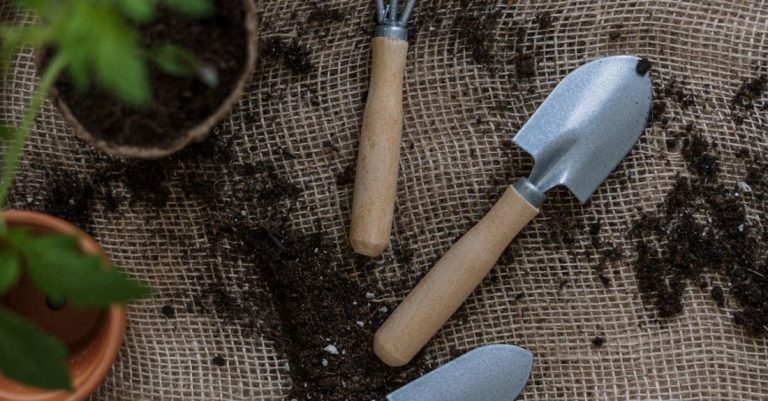
Growing organic herbs at home can be a rewarding and sustainable way to enhance your culinary creations and improve your overall well-being. Whether you have a green thumb or are new to gardening, cultivating your own organic herbs is a fulfilling and eco-friendly endeavor that can provide you with fresh, flavorful ingredients right at your fingertips. In this article, we will explore the essential steps and tips on how to successfully grow organic herbs in your own garden or indoor space.
Choosing the Right Herbs
Selecting the right herbs to grow is crucial for a successful organic herb garden. Consider the herbs that you frequently use in your cooking or those that have medicinal properties that you can benefit from. Popular choices for beginners include basil, mint, parsley, chives, oregano, and thyme. When choosing herbs, opt for varieties that are well-suited to your climate and growing conditions to ensure they thrive.
Preparing the Growing Space
Before you start planting your organic herbs, it’s essential to prepare the growing space. Whether you have a garden bed, raised beds, containers, or an indoor herb garden, make sure the area receives adequate sunlight for your herbs to flourish. Ensure the soil is well-draining and rich in nutrients to support healthy growth. Consider incorporating compost or organic fertilizer to improve soil quality and provide essential nutrients for your herbs.
Planting and Watering
When planting your organic herbs, follow the instructions on the seed packets or plant labels for proper spacing and depth. Water the herbs gently after planting to help them settle into their new environment. Be mindful of overwatering, as herbs generally prefer slightly drier conditions. Water your herbs when the top inch of soil feels dry to the touch, and avoid wetting the leaves to prevent diseases.
Caring for Your Herbs
To promote healthy growth and productivity, caring for your organic herbs is essential. Regularly check for pests and diseases, and address any issues promptly using organic pest control methods. Prune your herbs regularly to encourage bushier growth and prevent them from becoming leggy. Harvest your herbs frequently to encourage new growth and ensure optimal flavor. Remember to fertilize your herbs with organic fertilizers as needed to provide them with essential nutrients for robust growth.
Harvesting and Preserving
Harvesting your organic herbs at the right time is crucial to maximize their flavor and potency. Harvest herbs in the morning when their essential oils are most concentrated for the best flavor. Use sharp scissors or pruning shears to cut the herbs just above a leaf node to encourage new growth. To preserve your herbs, consider drying them by hanging bundles upside down in a dry, well-ventilated area or using a dehydrator. You can also freeze herbs in ice cube trays with water or oil for easy use in cooking.
Creating a Herb Garden Design
Designing your herb garden can enhance the visual appeal of your space while providing a functional and productive garden. Consider planting herbs with similar water and light requirements together to simplify care. Incorporate companion plants like marigolds or lavender to attract beneficial insects and repel pests. Get creative with container choices or vertical gardening to maximize space and create a beautiful herb display.
Experimenting with New Herbs
As you gain confidence in growing organic herbs, don’t be afraid to experiment with new varieties and flavors. Try growing herbs that are less common but offer unique culinary or medicinal benefits. Expand your herb garden by incorporating perennial herbs like rosemary or sage that can provide year-round harvests. Embrace the learning process and enjoy the journey of discovering new herbs to enrich your gardening experience.
Embracing the Organic Lifestyle
Growing organic herbs is not only about cultivating plants but also embracing a sustainable and eco-friendly lifestyle. By choosing organic gardening practices, you contribute to the health of the environment and promote biodiversity in your garden. Avoid using synthetic pesticides and fertilizers, opt for natural alternatives, and prioritize soil health to promote the well-being of your herbs and the ecosystem as a whole.
Incorporating Fresh Herbs into Your Daily Life
Fresh organic herbs can elevate your culinary creations and enhance your well-being in various ways. Incorporate freshly harvested herbs into your cooking to add vibrant flavors and nutritional benefits to your meals. Consider making herbal teas, infused oils, or homemade herbal remedies to explore the diverse uses of your herbs. Embrace the joy of growing, harvesting, and using organic herbs to nourish your body and soul.
Embracing the Organic Herb Gardening Journey
Growing organic herbs is a fulfilling and enriching experience that allows you to connect with nature, cultivate flavorful ingredients, and promote a sustainable lifestyle. By following the essential steps and tips outlined in this article, you can embark on your organic herb gardening journey with confidence and enthusiasm. Whether you have a small indoor herb garden or a sprawling outdoor herb plot, the joy of growing your own organic herbs is unparalleled. Start your herb garden today and reap the delicious rewards of your efforts while contributing to a healthier planet and a greener future.





